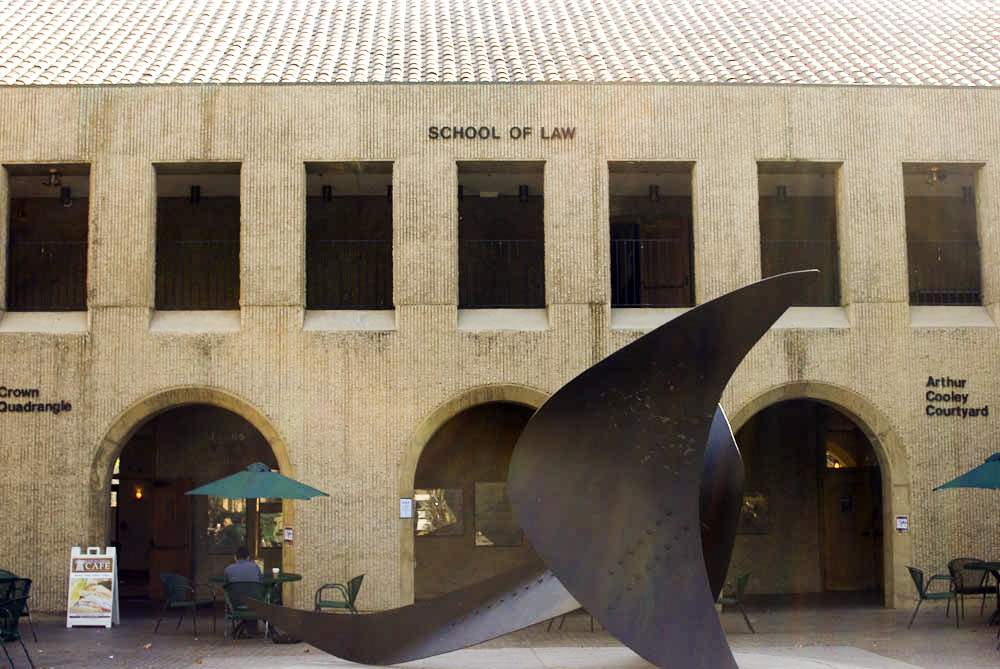Stanford Law School (SLS) professors Pamela Karlan and Michael McConnell will be part of Facebook’s new Oversight Board, the company announced last week.
The Oversight Board will have final say over complicated content moderation decisions — including on hate speech and misinformation — affecting Facebook’s 2.6 billion monthly users and Instagram’s more than 1 billion monthly active users, Facebook says.
The board is composed of a diverse membership ranging from “a variety of cultural and professional backgrounds,” according to Facebook. While Facebook recruited the four chairs of the board, the other members were interviewed and approved by the chairs “because they are experienced at deliberating thoughtfully and collegially, skilled at making and explaining decisions based on a set of policies or principles, and familiar with digital content and governance,” Facebook wrote.
“I don’t really know why I was identified as a prospect for the Oversight Board, but I assume that teaching a course on the freedoms of speech, press and religion in Facebook’s backyard, and my experience as a former judge, must have something to do with it,” McConnell wrote in an email to The Daily, adding that he has never had any prior connection to Facebook.
However, the announcement of the Oversight Board members has been met with criticism and questions around its power and whether its members can rule impartially. Some critics specifically cite concerns around the appointment of Karlan, referencing her role in testifying in the House of Representatives during impeachment hearings against U.S. President Donald Trump last December.
Karlan did not respond to The Daily’s request for comment.
If a user of a Facebook platform wants to appeal a content moderation decision — including taking down a post or page, expelling a member or leaving sensitive content up — the user can submit an appeal to the board.
The Oversight Board will have full autonomy to decide which cases will be heard, aided by case managers to sift through cases and help decide which ones will be elevated. Once the Oversight Board shares its final decision and any additional recommendations, Facebook must publicly respond to the board and implement its decision in accordance to the local and national law of the case in question.
“Through the founding bylaws of the oversight board, Facebook has committed to carrying out [its] decisions even though it may at times disagree … Facebook’s chief executive, Mark Zuckerberg, has also personally committed to this arrangement,” the co-chairs of the Oversight Board wrote in an opinion piece published in The New York Times.
This step comes amid the evolution of a two-year effort to help shift how content decisions on Facebook go from being a matter of a private company interacting with users, toward a broader discussion around complex legal issues regarding freedom of speech and human rights.
After facing immense international scrutiny and controversy regarding Facebook’s power to shape societal discourse in elections, political protests and public life, Mark Zuckerberg announced an initiative in November 2018 to overhaul how content is moderated and governed on Facebook’s platform.
In a lengthy Facebook post, Zuckerberg wrote about the challenges Facebook has faced in recent years on the subject and the responsibility it has “to keep people safe on our services — whether from terrorism, bullying or other threats.”
“We also have a broader social responsibility to help bring people closer together — against polarization and extremism,” he wrote. “The past two years have shown that without sufficient safeguards, people will misuse these tools to interfere in elections, spread misinformation and incite violence.”
Throughout this process, the Stanford community has engaged with the challenges facing Facebook in ways beyond the appointment of two of its professors to the board.
In June 2019, Stanford Law School Dean Jenny Martinez and Harvard Law School professor Noah Feldman discussed in a public livestream with Zuckerberg the challenges facing the planned Oversight Board.
“A big challenge that you will have that will make or break this is how you manage the volume of potential cases and the case selection process,” Martinez told the group at that time.
In April 2019, Facebook solicited public proposals on how to best design and operate the Oversight Board. The company received more than 1,200 public submissions from over 88 countries, including one submission of recommendations from the SLS Law and Policy Lab. The lab “provide[s] Stanford Law students with hands-on experience influencing and advising individuals, government agencies, and non-profit organizations about cutting-edge issues in real time.” according to SLS Dean Jenny Martinez.
In partnership with the Stanford Project on Democracy and the Internet, the Policy Lab assembled 12 Stanford students to develop recommendations for the Facebook Oversight Board. The practicum research team developed a lengthy report outlining how the board should be funded, how members should be appointed, how cases should be selected and how the board can increase public transparency into the content appeals process.
“It was also the first time I helped put out a report like this, and this practicum also helped me get more interested in the intersection between technology, institutional design and public policy,” said Ashwin Ramaswami ’21, a member of the practicum research team and chief technical officer at The Daily.
Ramaswami said there were some differences between the practicum research team’s recommendations and how the board was actually set up. Members of the board are part-time, Ramaswami noted, even though the practicum research team “suggested that members need to be full-time in order to handle the huge caseload.”
McConnell told The Daily that Stanford students have a role to play in this evolving conversation around technology and society.
“Much of what I know about social media I have learned from Stanford students,” he wrote. “They are my window on the world.”
Contact Shreyas Parab at sparab22 ‘at’ stanford.edu.
